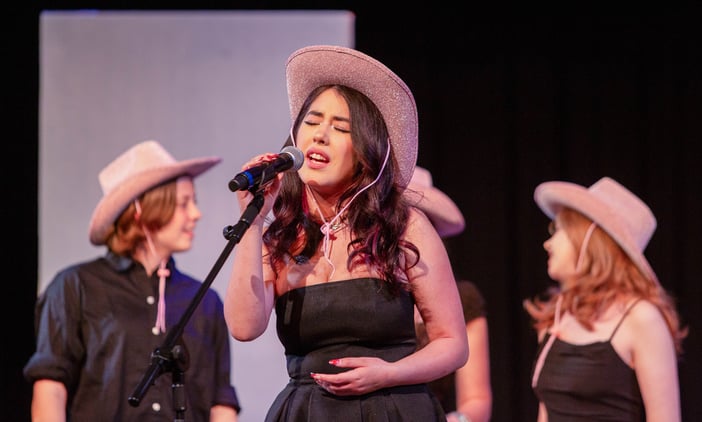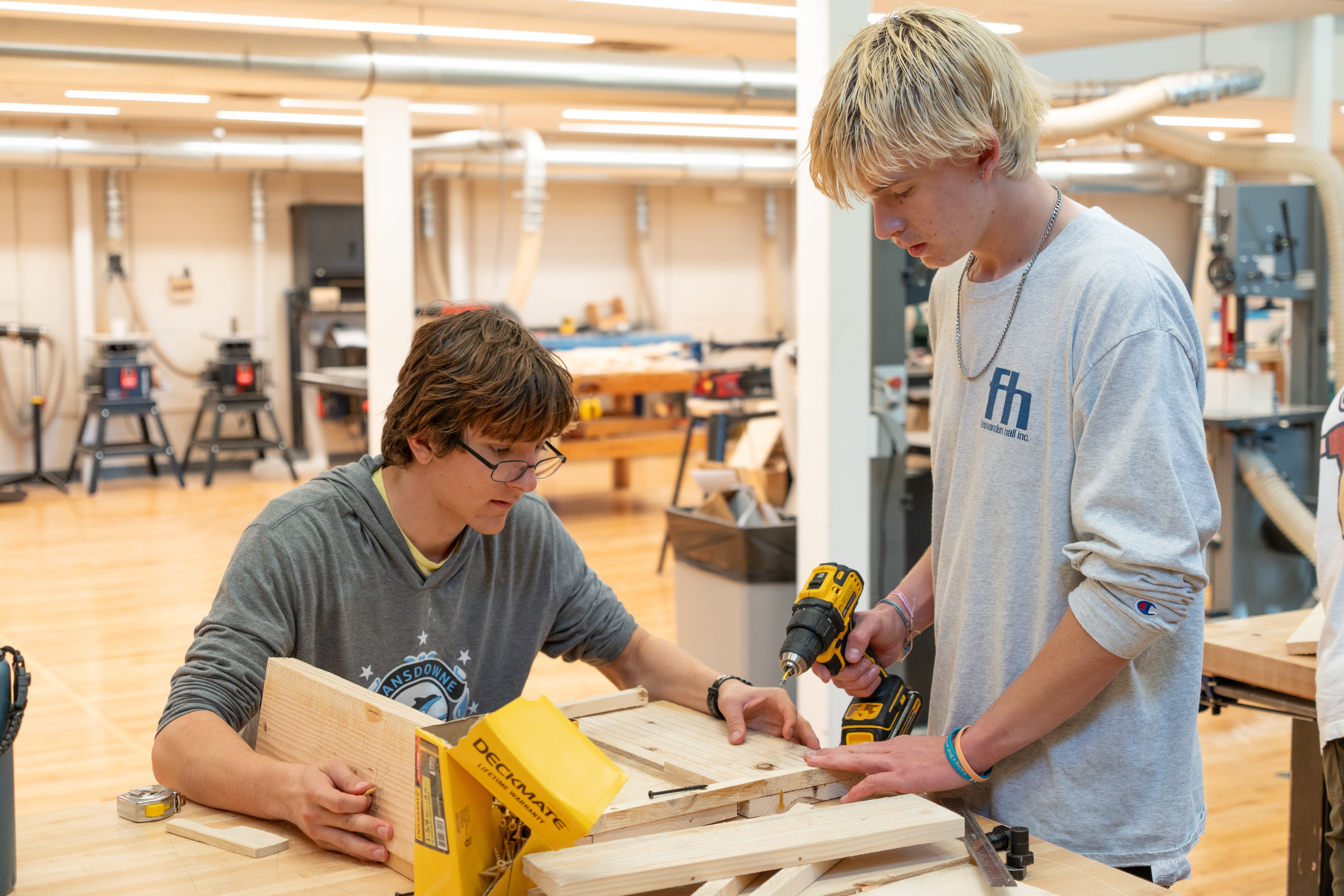Independent learning helps children develop curiosity, confidence, and problem-solving skills that serve them in school, college, and beyond. Parents can play a key role by creating opportunities for and supporting their child’s independent learning. Here are five practical ways to support your child, along with examples of how students at Friends’ Central School put these strategies into action.

1. Encourage Exploration Around Their Interests
Let children pursue topics they are genuinely curious about. When following their interests, people are more engaged and motivated to learn.
At Friends’ Central, students have:
- Designed their own ecology-focused projects for the annual Upper School Natural History Conference, including analyzing campus biodiversity, identifying species using DNA barcoding, or studying local pollinators.
- Undertaken passion projects such as building full-size phone boxes, podiums, furniture, musical instruments, and other creative endeavors that reflect their unique interests.
2. Provide Tools, Time, and Encouragement
Support your child by giving access to materials, dedicated time, and a supportive environment.
Students at Friends’ Central experience this through:
- State-of-the-art Maker Spaces: Using the Audrie Gardham Ulmer ’37 Center for Innovation and Design (CID) and the Ulmer Light Lab to build, experiment, and bring ideas to life.
- May Term: In this 10-day Upper School course, students focus deeply on interdisciplinary projects beyond the curriculum and ranging from astronomy to architectural design and creative writing.

3. Support Hands-On Involvement
Encourage experimentation and problem solving, which help children develop resilience, creativity, and independence.
At Friends’ Central, students practice this by:
- Practicing design iteration, troubleshooting challenges, and competing in regional competitions as part of the Earthquakers Robotics Team.
- Participating in the Social Innovators Program, a 12-week partnership with the University of Pennsylvania where students develop ventures that address social challenges. Students test, refine, and adapt their ideas to create solutions with tangible impact.
4. Connect Learning to Real-World Experiences
Projects feel more meaningful when children see how their work relates to the world around them. These experiences help students understand the tangible impact of their learning and motivate them to continue pursuing meaningful work.
- Seven FCS Students presented research on postpartum depression at the Annenberg Biomedical Symposium, sharing findings with healthcare professionals and contributing insights that could directly improve care for women globally.
5. Foster Collaboration and Feedback
Encourage your child to share ideas with peers, mentors, or family, and to reflect on constructive feedback to reinforce learning and build problem-solving skills.
- Cai Dunne ’28, created a full-length play, I Believe You, working with professional mentors and Temple University actors to bring the work to life.
- Maia Sevin ’25 presented her pediatric ophthalmology research to over 1,000 doctors, gaining expert insight and refining her understanding.
- Peter Hu ’27 tackled open-ended physics challenges on the international stage in Sweden through the International Young Physicists Tournament Club, collaborating with fellow young physicists from around the world.
.jpg?width=6000&height=4000&name=3O4A1122%20(1).jpg)
By sharing ideas and receiving feedback, students strengthen both their work and their confidence, learning how to improve through constructive critique and collaboration.

